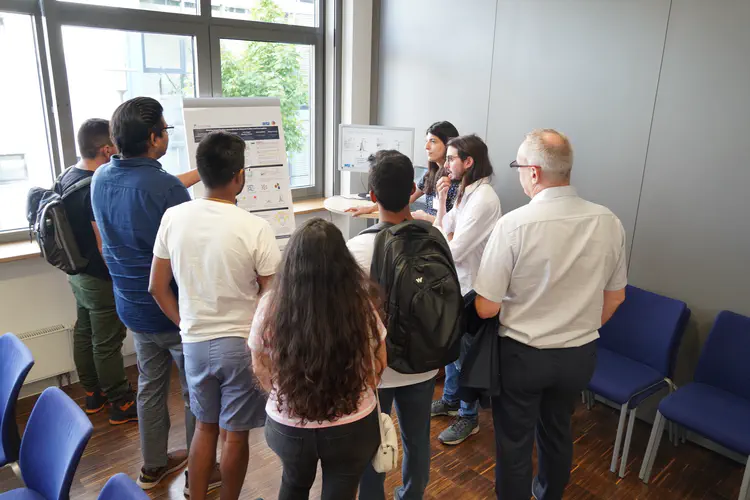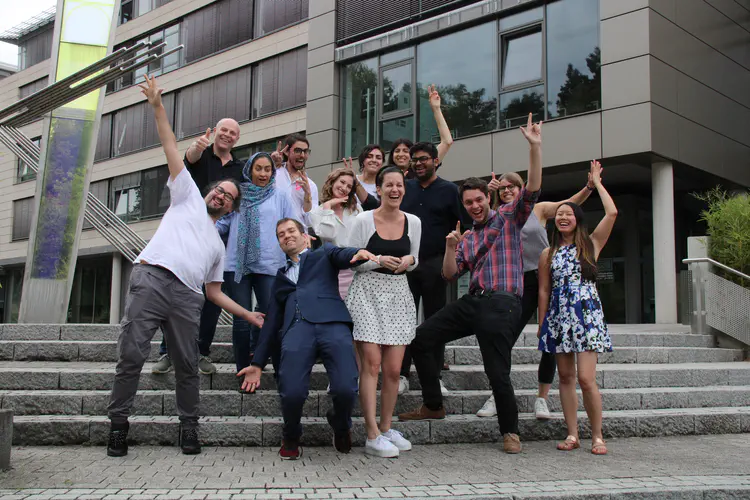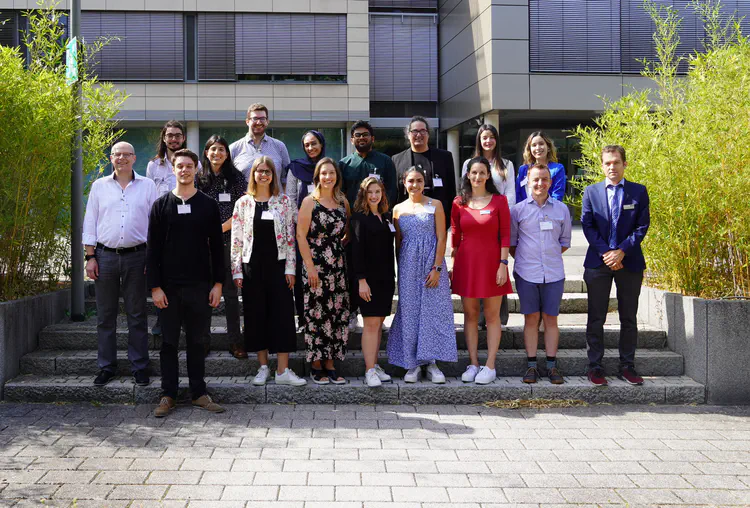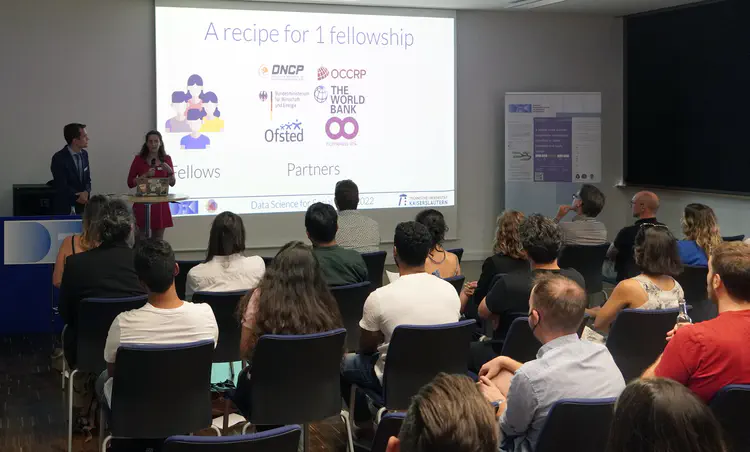The Data Science for Social Good (DSSG) Fellowship trains aspiring data scientists to work on data science projects with social impact in an ethical manner. Our fellows, supported by mentors and our team, help not-for-profit organisations and government bodies to achieve more with their data by improving their services, interventions and outreach so that they can fulfil their mission of bettering the world and people’s lives.
DSSG achieves this through a 12-week summer programme training students to create industry-standard data science products in collaboration with partners in government and NGOs, doing projects with a positive social impact. We have previously worked on projects in social care, government transparency and anticorruption, environment, health, transportation, economic development, investigative journalism, etc.
A quick introduction to DSSG, presented at the final event of DSSGx Kaiserslautern 2022.
DSSG comes to Germany
After organising the Data Science for Social Good Fellowship at the University of Warwick and the Alan Turing Institute for 3 years — we brought this concept to Germany in 2022, and are happy to confirm that we will run the programme again. The 2023 edition of DSSGx fellowship in Germany will be held in person at the University of Kaiserslautern and German Research Center for Artificial Intelligence (DFKI), between 12th June and 1th September 2023.
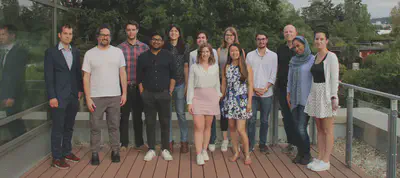
We are an affiliate programme of the DSSG Foundation’s summer fellowship at Carnegie Mellon University (CMU), USA. We are closely collaborating with the DSSGx UK fellowship at the University of Warwick, and have a common application procedure for fellows. The Warwick fellowship dates are Monday 5 June – Friday 25 August inclusive.
DSSG 2023 Fellowship Programme
Deadlines:
Fellows: 18th December 2022 at 13:00 CETProject partners, technical mentors and project managers: 6th May 2023 AOE
DSSG 2022 Fellowship Programme
Our 2022 fellowship saw 9 fellows from 8 countries come to Kaiserslautern to work on two projects. We have partnered with Organised Crime and Corruption Reporting Project (OCCRP) to help investigative journalists uncover crime and corruption and with Paraguay’s public procurement agency (DNCP) on reducing irregularities in public procurement.
Why these institutions?
German Research Center for Artificial Intelligence (DFKI) The German Research Center for Artificial Intelligence (DFKI) was founded in 1988 as a non-profit public-private partnership. It has research facilities in Kaiserslautern, Saarbrücken and Bremen, a project office in Berlin, a Laboratory in Niedersachsen and branch offices in Lübeck and Trier.
Life in Kaiserslautern
Kaiserslautern has an international flair and is situated close to the French and Luxembourgian borders. This town lies in the middle of the low-lying mountain range known as the Pfälzerwald, or Palatinate Forest.
